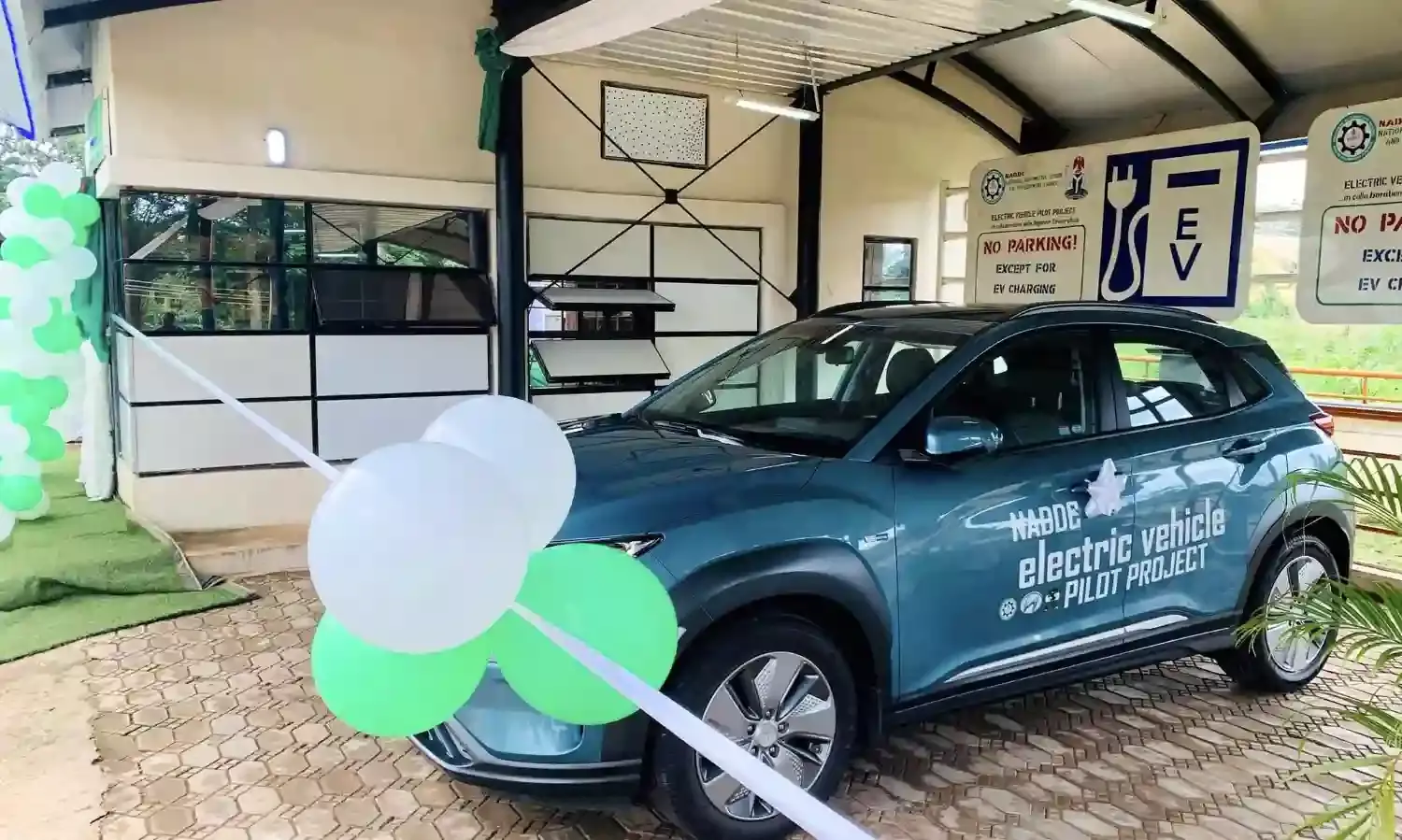FG inaugurates solar powered electric vehicles charging station in UNN
Global warming and climate change are detrimental to human health and pollute our environment; many countries are moving away from fossil fuel vehicles to electric vehicles because of their adverse effects.;

The Federal Government has inaugurated a solar-powered electric vehicle charging station at the University of Nigeria, Nsukka (UNN).
Mr. Jelani Aliyu, the Director-General, National Automotive Design and Development Council (NADDC), said at the inauguration on Friday that the organisation was committed to technological advancement in the automotive industry.
Aliyu said this would reduce the use of fossil fuel vehicles that pollute the environment and contribute to global warming.
“Global warming and climate change are detrimental to human health and pollute our environment; many countries are moving away from fossil fuel vehicles to electric vehicles because of their adverse effects.
“This informs the reason why NADDC, an agency in the Federal Ministry of Industry, Trade, and Investment, is sponsored by the government to build electric vehicle charging stations powered by solar across the country.
“This is to ensure zero percent carbon emissions in our environment as well as reduce health problems associated with it,’’ he said.
Aliyu, represented by Mr. Olarawaju Omusanya, the Director of Infrastructures in NADDC, said Usman Danfodo University, Sokoto, the University of Lagos, and the University of Nigeria, Nsukka, were the three universities selected for the pilot project.
“The Usman Danfodo University, Sokoto, and the University of Lagos were inaugurated in 2021, and today we are inaugurating the University of Nigeria, Nsukka.
“The automotive council encourages universities in the country to utilise this opportunity by stimulating further research and development for this project,’’ he said.
The director-general said the council would continue to promote advanced technology transfer and the development of domesticated human capital.
“It is expected that the solar-powered charging station will offer staff and students firsthand experience in mobility and renewable power technology.
“An electric vehicle fully charged at this station will travel 480 kilometres before it stops.
“Globally, there is an ongoing transition from gasoline and diesel vehicles to electric vehicles,’’ he said.
He commended Prof. Charles Igwe, the Vice-Chancellor of UNN, and the management for their maximum cooperation to see that the project was completed and inaugurated.
In his remark, Igwe appreciated the NADDC for choosing UNN as one of the pilot universities in the country for the project.
He said that UNN would continue to do its best as the premier university in the country.
The vice chancellor urged the UNN faculty of engineering to ensure that many of the vehicles at the university were converted to electric vehicles.
Now that there is a solar-powered charging station for electric vehicles, our engineers at the university should take advantage of this to convert our vehicles to electric to reduce the cost of buying petrol and diesel.
“The university is grateful to the government for choosing UNN as one of the pilot universities in this landmark project,’’ Igwe said.
Prof. Ozomena Ani, the UNN Coordinator of the project, commended the UNN vice chancellor for approving the project as well as allowing him to coordinate the project at the university.
Ani, an engineer and a lecturer in the Faculty of Engineering at UNN, said that his research team would ensure the maintenance of the project.
Earlier, Prof. Emenike Ejiogu, the Dean of the Faculty of Engineering at UNN, represented by Prof. Sunday Ezeoha, said the faculty would continue to provide the required manpower in engineering.
“The faculty is happy that the NADDC solar power charging station is located in our faculty; the faculty will ensure the university community and other residents reap the benefits of the project,’’ Ejiogu said.

